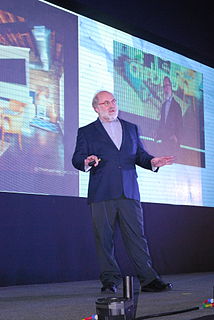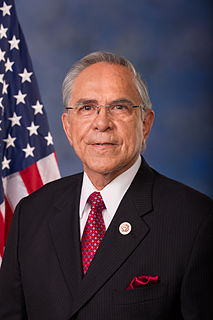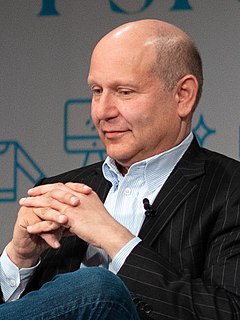A Quote by Daphne Koller
Our approach to education has remained largely unchanged since the Renaissance: From middle school through college, most teaching is done by an instructor lecturing to a room full of students, only some of them paying attention.
Related Quotes
I believe that a core problem with undergraduate education, especially at research universities like Harvard, Stanford, NYU, etc, is that most teaching is done by PhDs, who by temperament, training, interests, and rewards are researchers first. So they spend most of their time and energy probing a snip of a field's cutting edge. In my view, the attributes needed to be a transformative undergraduate instructor are pretty orthogonal to that. It would seem that undergraduate education would be superior if there was a separate track for teaching faculty.
Our mission at Khan Academy is a free, world-class education for anyone, anywhere, and college readiness is a crucial part of that. We want to help as many students as possible prepare for college and for life, and since the SAT measures preparedness for college, our partnership with the College Board is a natural fit.
The thing I always tell my writing students - I'm not a full-time instructor, by any means, but periodically I've taught writing students - what I always tell them is that the most important thing in narrative nonfiction is that you not only have to have all the research; you have to have about 100% more than you need.
We often think about happiness as trying to increase our joy, but it's also about decreasing our worry. So what you get for paying those high taxes is, if you're a parent thinking about putting your child through school, you don't have to worry about it, because all education through college is free.
In the sixties, in the middle sixties, suddenly comics became this hip thing, and college students and hippies were reading them. So I was one of them, and I started reading, basically it was the Marvel Renaissance at that point. It was all their new characters, Spiderman and the X-Men and the Fantastic Four.
Education is huge for me. I went to public school until I turned thirteen, and was lucky enough to afford college once I became successful as an actress. I cannot believe that quality education costs as much as it does in this country. Ghetto Film School is a remarkable public high school in New York City where students get to learn to express themselves through filmmaking, and have hands-on access to equipment.





































